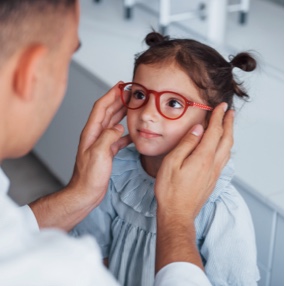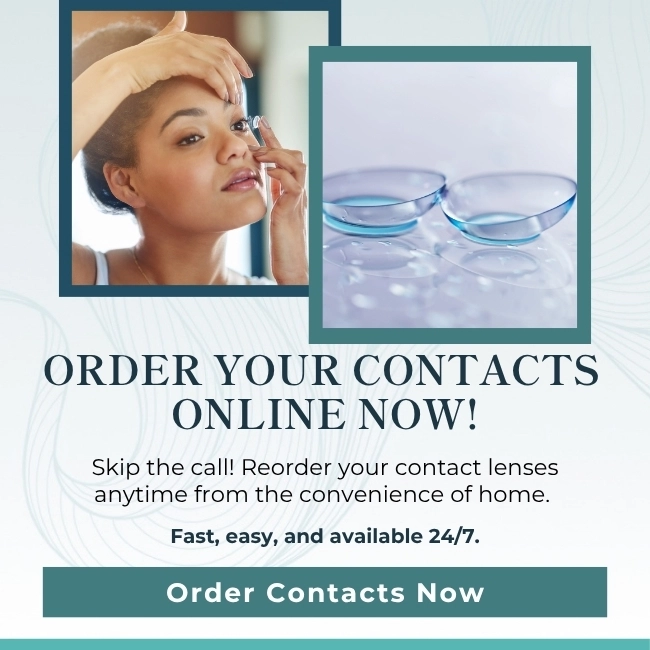Have you ever stopped to think about how much your eyes actually do for you? From reviewing your lecture notes early in the morning to scrolling on your phone late at night, your eyes are working overtime without complaint.
When your vision feels off and the words on the screen in front of you look slightly fuzzy, a lack of sleep might not be the problem. Blurry vision, frequent headaches, squinting, difficulty driving at night, and digital eye strain are all telltale signs that it might be time for glasses, or at least a visit to your optometrist.
Is It Time for Glasses? Signs to Look For
Many of us ignore the little signs that tell us something is off with our vision. That is, until the disturbance becomes too noticeable to brush off.
The more you support your eyes, the better they feel! Look for these common symptoms that often suggest it’s time for glasses or updated prescription lenses:
- Blurry vision: Struggling to read the all-important PowerPoint slides at the back of the lecture hall? Blurry vision, whether it’s with faraway objects (myopia) or up-close tasks like reading (hyperopia), is often one of the first signs you need glasses.
- Frequent headaches: Regular headaches after a long day of reading, writing, or any focused work could stem from eye strain. This occurs when your eyes work harder and overcompensate to focus and see clearly.
- Squinting: Squinting reduces the amount of light entering your eyes and improves focus temporarily, but it’s usually a sign that you’re struggling with your vision.
- Difficulty seeing at night: If you notice that your vision tends to worsen at night, especially while driving, you may have uncorrected refractive errors like myopia or astigmatism. Common issues of this kind include halos and scattering light.
- Digital eye strain: University life means hours of screen time between laptops, tablets, and smartphones. If you experience dryness, irritation, or blurry vision from screen use, it could be a sign that you need glasses with additional coatings, like anti-glare.
A quick note on glasses—they don’t make your vision worse. The right prescription lenses restore visual clarity and alleviate eye strain and headaches, making them a great way to support your vision, eye health, and overall quality of life.
Why Visiting Your Optometrist Matters
Student life is all about finding the right hacks, study tools, and tricks to stay ahead of the curve, while somehow still maintaining a thriving social life. Your health, however, doesn’t adhere to the same expectations. There’s no life hack or alternative to visiting your optometrist.
Everyone benefits from routine eye exams. In fact, an eye exam is often your first line of defence against serious vision issues that can harm your vision or overall eye health. The sooner your optometrist identifies any potential concerns, the sooner they can intervene with the right treatment.
Online retailers cannot replace quality, comprehensive care. Here’s a closer look at the benefits of visiting your optometrist for your routine eye exam:
Accurate Prescriptions
Online vision tests might be convenient, but they don’t provide the amount of detail you’ll get from an in-person eye exam.
An optometrist doesn’t just check if you can see the letters on a chart. They assess how your eyes work together, their overall health, and whether you might benefit from in-office treatments such as dry eye therapy.
Detecting Eye Health Issues
Evaluating your vision is only part of the visit. Optometrists also check for signs of eye diseases such as glaucoma, retinal issues, and diabetic retinopathy, which can go unnoticed and which pose a serious risk to your sight without timely management.
Tailored Solutions for Your Lifestyle
An optometrist tailors eye exams to meet their patients’ visual needs.
Your eyes support you everywhere, which is why optometrists take daily activities like studying, screen time, sports, or leisure habits into account when suggesting the right lenses and coatings for your glasses.

Where to Purchase Your Glasses?
Glasses have come a long way since their inception. You can find a stylish pair of specs almost anywhere, but when it comes to prescription lenses, purchasing your glasses from your optometrist is usually the best option.
Expert Fitting & Adjustments
Glasses that fit perfectly make a noticeable difference in both your comfort as well as the quality of your vision correction.
When you purchase glasses from an optometry clinic, they can professionally adjust your frames to fit securely and comfortably. They also account for facial measurements, pupil alignment, and prescription nuances for utmost precision.
Personal Solutions
Your optometrist has unique insight into your vision requirements and lifestyle. Whether you need blue light glasses for computer use or polarized lenses to limit glare while you enjoy your time outdoors, they can recommend lenses that complement your daily life.
Comprehensive Warranty & Ongoing Support
Working with lens manufacturers and frame retailers has its perks! Your optometrist can provide warranties that cover repairs (glasses can be durable, but they’re not indestructible) or replacements.
Besides, glasses are like jeans. Even with proper care and handling, they can loosen over time, losing their snug fit. Thankfully, your optometrist offers free adjustments and cleaning services, helping you keep your glasses in top shape.
Invest In Your Vision
The chaos of student life can feel exhausting at times, but take comfort in knowing your eyes are your biggest support. So, when the world looks fuzzier and you’re straining to see around you, it’s time to give your eyes the attention and care they deserve. Connect with Clarity Optometry & Vision Care to book an appointment, or stop by to browse our unique selection of frames. Investing in your eye health is worth the end result.


























